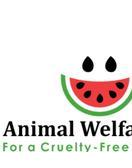The Ultimate Guide To Vegan!
Chapter 15. It’s not just food! Hidden challenges of going vegan.
Many people perceive veganism as a diet, but being an ethical vegan is so much more than just that.
Rather then a nutrition plan, veganism is an entire lifestyle which includes so many factors beyond what you choose to put on your plate.
To put it simply, being an ethical vegan means to not rely on animals in any area of your life, in any form.
Some of the examples include not wearing fur/leather and not supporting animal performances (e.g. circus).
This brings many hidden challenges into a new vegan’s life. The period of transitioning to veganism may quickly get overwhelming if you’re not prepared to look out for unexpected forms of animal cruelty.
This is why we’ve put this material together to pinpoint some areas of life worth being that little bit extra cautious about.
Sit back and enjoy our selection of helpful tips below!
Clothing
Going vegan means saying goodbye to all animal-derived materials commonly used to make clothes.
It may be a tad harder than you think, considering that not only the obvious leather and fur, but also materials such as silk and wool will have to go – and it doesn’t make it easier that wool, for instance, is used in so many fabric blends, even if in tiny proportions.
Here’s a quick guide to shopping for vegan clothes:
Shoes.
Avoid materials such as leather, suede, skin and fur.
Vegan-friendly materials include faux/“eco” leather, faux fur, cork, cotton, microfiber, canvas and cotton.
Bags.
Again, avoid any kind of leather, suede and fur.
Instead, choose faux counterparts, canvas, cotton and all synthetic materials.
Clothes.
Avoid any kind of wool/angora, pashmina, cashmere, hair, mohair, alpaca and silk.
Shop for cotton, linen, polyester fleece, synthetic fabrics, tencel, nylon, rayon, modal, viscose, denim and twill.
Coats and jackets.
If you live in a cold climate, you can still stay warm while making vegan choices! Don’t buy outdated animal-derived materials such as wool, natural fleece, down or fur.
Instead, opt for warm and cozy synthetic materials such as Gore-Tex, polyester fleece, synthetic down and many others. As a bonus, these technologically materials often perform better than those created at a cost of animal suffering!
Household
Leading a vegan lifestyle means adjusting many habits, including how you manage your household.
Unfortunately, there are many commonly used products which are sneakily not vegan friendly! Just to provide a few examples:
Bedding.
Many bedspreads, comforters and such are made out of down, so double check the contents – those are always on the label. Vegan fills include all organic materials free of animal ingredients and by-products, so no wool, silk, fur, leather, dairy, eggs, honey, beeswax, or lanolin.
Cleaning products.
Many cleaning do not qualify as vegan, as they’re either made with animal products or have been tested on animals.
Here’s a nice list of vegan alternatives. Otherwise, just stock up on some good old natural cleaning products such as baking soda, vinegar and club soda, and create your own cleaning products.
Soy products.
Surprisingly, many soy products contain animal-derived additives such as traces of beeswax or even crushed beetles for colouring (ugh!). Check your labels and be merry.
Candles.
Many candles are created with tallow or beeswax, and they may also contain honey as scent. The solution is to look for candles that explicitly say they’re 100% vegan, or even make your own – what a nice little hobby!

Glue.
Next time you’re getting glue for your kids’ school project, keep in mind that most glues are far from animal friendly, as they are often made with connective tissue of cattle and horses (yes, you read that right).
Look for locally available vegan alternatives, such as Elmer’s glue.
Cosmetics
Unfortunately, despite all the technological advancements made in the area, in many parts of the world animal testing of cosmetic products is still required by law. This means that in such places, animals are suffering and dying all to test cosmetics which has long history of safe use, such as lip gloss and hair conditioner.
Just to give you some horrifying numbers, it is estimated that approximately 100,000-200,000 animals suffer and die just for cosmetics every year around the world.
Species most often used for these cruel unnecessary tests include rabbits, guinea pigs, hamsters, rats and mice.
Contrary to popular belief, dogs and monkeys are not used for cosmetics testing – however, these animals may still be exploited in laboratories that test other types of chemicals and medications.
Typical tests include skin and eye irritation tests, where chemicals are rubbed into these areas in ridiculous doses far exceeding those added to actual products.
There are also force-feeding tests, as well as widely condemned “lethal dose” experiments. The latter involve forcing animals to swallow massive amounts of a test chemical to determine the deadly dose. Pain relief is not provided as it may interfere with test results.
Fortunately, you don’t have to support these cruel practices utilised in cosmetics industry, as there are so many wonderful cruelty-free vegan friendly brands around making safe, high quality products using the latest laboratory testing practices.
Here’s a great comprehensive vegan makeup guide.
The examples above are just a little part of the big picture, and unfortunately there are many hidden animal ingredients in products we tend to use daily without much thinking.
Always do your research, keep up to date with news (including Animal Welfare Org) and summaries from reputable vegan communities, and you’ll always be on a safe, cruelty-free side.
Go back to Chapter 14 Go to Chapter 16

